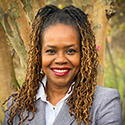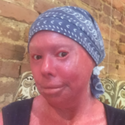Belonging: Building and Sustaining Environments that Support High Expectations, Engagement, and Empowerment for All! (October 2023)
The 2023-2024 OSERS Symposia Series will provide an opportunity for the field to join OSERS in the challenge to raise expectations, engage families earlier, and fully empower all individuals who support transition services to improve postschool outcomes for children and youth with disabilities and their families. OSERS believes that education and vocational rehabilitation services can work seamlessly to deliver high-quality transition programming that will prepare youth with disabilities for lifelong success. Such effective delivery under IDEA and WIOA relies on purposeful collaboration between educators, vocational rehabilitation professionals, service providers, and especially youth and families.
Symposium Recording and Additional Resources
Presenter Information
Evaluations
Symposium Prework
Symposium Postwork
Special Needs
Mobile Website
Lodging, Dining, Activities
Call for Proposals
Symposium #1
Belonging: Building and Sustaining Environments that Support High Expectations, Engagement, and Empowerment for All!
Opening Remarks
Valerie Williams, Director, Office of Special Education Programs, U.S. Department of Education
Carol Dobak, Commissioner, Rehabilitation Services Administration, U.S. Department of Education
Why does belonging matter in secondary transition?
Hunter Steinitz, MDiv., Youth Engagement Specialist, Pennsylvania Bureau of Special Education, and Office of
Vocational Rehabilitation.
What is belonging?
Erik Carter, Luther Sweet Endowed Chair in Disabilities, Baylor University
Belonging in school-based settings – Panel/video
Dawn De Lorenzo (moderator), Special Education Teacher, Union Township School District, Hampton, NJ
Devin McKenney, Student, Union Township School District
Stephen McKenney, Legal Guardian of Devin McKenney
Lisa Schoberl, Paraprofessional, Union Township School District, Hampton, NJ
Rob Frinzi, Health and PE Teacher, Union Township School District, Hampton, NJ
Caiden, Ty, and Gianni, Friends of Devin
Belonging in college and workplace settings – Panel/video
Tonya Stellar, Rehabilitation Services Administration, U.S. Department of Education
Chris Carter, College Student, Wyoming Division of Vocational Rehabilitation (DVR) Transition Client
Brandon Chavez, DVR Client, Colorado DVR
Callie Davis, Program Coordinator, Wyoming DVR
Whitney Martinez, Disability Coordinator and Counselor, Central Wyoming College
Mary Dick, Regional Coordinator, Colorado DVR
Katrina Ruggles, Employer, Center High School
Carmen Pavlovsky, Employer, Center Viking Youth Club
How do you measure belonging in different contexts?
Erik Carter, Luther Sweet Endowed Chair in Disabilities, Baylor University
Questions and Answers
Valerie Williams (moderator), Director, Office of Special Education Programs, U.S. Department of Education
Erik Carter, Luther Sweet Endowed Chair in Disabilities, Baylor University
Dawn De Lorenzo, Special Education Teacher, Union Township School District, Hampton, NJ
Closing Remarks
Valerie Williams, Director, Office of Special Education Programs, U.S. Department of Education
Speaker Bios

Valerie Williams, Director, Office of Special Education Programs, U.S. Department of Education
Valerie C. Williams serves as the director in the Office of Special Education Programs (OSEP) within the Office of Special Education and Rehabilitative Services at the U.S. Department of Education. In this role, she is responsible for overseeing administration of the Individuals with Disabilities Education Act (IDEA), which authorizes formula grants to states under IDEA Part B and to lead agencies for the infants and families program under IDEA Part C. IDEA also authorizes discretionary grants under IDEA Part D to institutions of higher education and other non-profit organizations to support grants for state personnel development, technical assistance and dissemination, technology, and parent training and information centers.
Williams most recently served for six years as senior director of Government Relations and External Affairs at the National Association of State Directors of Special Education. She has decades of experience, which include supporting state-level special education leaders by overseeing federal government public policy activities, federal regulatory affairs, public relations, and key initiatives to promote equity and guide positive systemic change, thereby improving outcomes for students with disabilities. She also served as the Joseph P. Kennedy, Jr. Public Policy Fellow, on the U.S. Senate Health, Education, Labor & Pensions Committee advancing disability policy and civil rights. Prior to that, she managed the budgeting and finances for numerous multi-million-dollar programs within the Departments of the Navy and the Air Force, and the Nuclear Regulatory Commission.

Carol Dobak, Commissioner, Rehabilitation Services Administration, U.S. Department of Education
Effective January 20, 2021, Carol L. Dobak is delegated the authority to perform the functions and duties of the Commissioner for the Rehabilitation Services Administration (RSA), within the Office of Special Education and Rehabilitative Services at the U.S. Department of Education. Ms. Dobak also serves as Deputy Commissioner since December 2022, and Director of RSA’s State Monitoring and Program Improvement Division since 2016. She began her RSA career in 2000, and has held a variety of positions, including Program Specialist with responsibility for the Client Assistance Program and the Protection and Advocacy of Individual Rights program, Policy Advisor in the OSERS Office of Policy and Planning with responsibility for the State Vocational Rehabilitation Services and other RSA programs, and Chief of RSA’s Vocational Rehabilitation Program Unit. Ms. Dobak holds a J.D. from the University of Maryland School of Law and is a member of the Maryland Bar.

Dr. Erik Carter, Luther Sweet Endowed Chair in Disabilities, Baylor University
Dr. Erik Carter, Ph.D., is Luther Sweet Endowed Chair in Disabilities. His research and writing focus on principle-driven and research-based strategies for promoting full participation, relationships, and valued roles for children and adults with intellectual and developmental disabilities (IDD). He serves as Executive Director of the Baylor Center for Developmental Disabilities, which aims to promote the thriving of people with disabilities and their families. He joined the Baylor faculty in 2023.
His research explores the pathways to inclusion and belonging for individuals with intellectual and developmental disabilities (IDD). He is particularly interested in capturing the reciprocal and lasting benefits that come through friendships and life lived together in community.
He is committed to ensuring that the best of what we know works is what permeates everyday practices. Dr. Carter has co-authored seven books and more than 300 journal articles, chapters, and other publications. His scholarship and advocacy have also been recognized with awards from All Belong, the American Association on Intellectual and Developmental Disabilities, the Association of University Centers on Disability, the Council for Exceptional Children, and Key Ministry.

Hunter Steinitz, MDiv., Youth Engagement Specialist, Pennsylvania Bureau of Special Education, and Office of Vocational Rehabilitation
Hunter is a speaker, writer, and self advocate with a visible disability. She was born with an extremely rare genetic skin disorder called Harlequin Ichthyosis. She is the oldest woman in the United States with her condition. Hunter works as a Youth Engagement Specialist for the Pennsylvania Bureau of Special Education and Office of Vocational Rehabilitation. She works to bring affected youth voices into the conversation, through many community groups and organizations. She is also the Vice Moderator for Presbyterians for Disability Concerns. Hunter strives to help all people of all abilities find belonging.